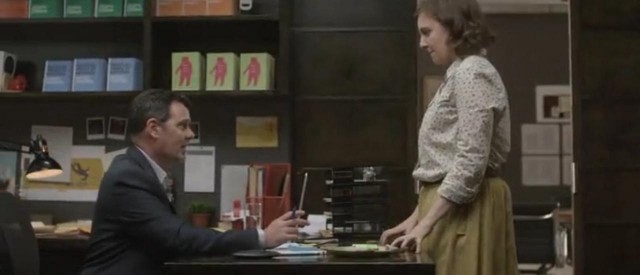Pursuing the Creative Career, and Getting Paid for it Too
by Harry Ayles

Around ten minutes into an amiable chat with my friend Steve about my new editorial job, he accidentally insulted me. We had both left university a year before, and were moving slowly up the ranks of our chosen professions in London. I was earning £19K ($30,880) at the time, and Steve was earning £40K ($65,012).
I was alluding — self-deprecatingly, but also with quiet terror — to the fact that I wasn’t making much money. I didn’t go out much, and I ate a lot of toast, but I was sliding further into my overdraft. I hadn’t bought new clothes for months, and so I was turning up to my mid-level job (in an admittedly casual publishing house) in threadbare jeans and dirty Converse. Worse, I was constantly anxious that I was wasting the valuable currency of my excellent degree — basically my only asset — by trapping myself in an industry where financial expectations are low and progress up the ladder is traditionally slow. Steve, who was at Oxford with me and works in finance, was not sympathetic. In fact, he was amused. “The thing is, H,” he smiled, “your job is fun. I go to work every day, and I’m bored. I make a lot of money, but it’s really hard, and boring.”
My company makes a lot of money. I don’t make a lot of money. When speaking to graduates and students on publishing courses, I used to make light of the fact that the starting editorial salary is paltry and that moving up is a struggle (see the sweet Tumblr blog Life in Publishing for inspiration). It’s a powerful narrative and most graduates are happy with it: one part manic pixie dream girl, one part Matilda, the modern lady editor who loves books, knitting, cocktails and cats, and can’t expect money on top of all that.
“We’re so lucky,” we tell each other. “It’s such a nice industry.”
The thing is, though, we’re no longer just editors. Twenty-first century editors are mostly project managers, as well as data-miners, coders, and graphic designers. We maintain sprawling, complicated financial systems. We fight, daily, with Excel. We prepare ever-shrinking budgets and make the necessary cuts to stick to them. At the most mundane level, we pretty much sit at computers every day sending emails and mediating disputes. We do not nestle in the trunk of the Story Tree, listening to authors spin golden tales out of magical dust.
Steve may have been three pints down and in an aggravating mood, but he wasn’t trying to wind me up. He was voicing the same opinion that I’d heard over and over from both peers and superiors. It was a dismissive, indulgent attitude to “creative” professionals that implies one or several of the following:
1. We are somehow childish, and perhaps immune to the concepts of flat-buying, or family-raising? We were definitely too naïve to have considered these concepts when planning our careers.
2. We’re not really hard up. We probably have secret money, family money, or similar. We’re middle class, after all (or not, see this), and so eventually we will be “all right”.
3. Since we have chosen to do something “rewarding,” we do not also deserve meaty salaries. Many teachers I know have heard this one. Doctors, not so much.
4. We’re often women. In flexible, female-dominated industries that champion creativity, perhaps we’re playing at work until a spouse comes along, or perhaps we’re in it for the home-working and the longer maternity leave. It pains me so much to add this point, and I wish I could edit it out.
When I was finally offered a publishing job that paid well, the relief was incredible. It widened my future, released tension I felt with my parents and partner, and also gave me a huge boost of self-respect. Getting that job attracted plenty of support from peers and mentors, but also some snark. It was implied that I was cut-throat (though I had done nothing that negatively affected my colleagues) and overly ambitious. It was suggested that I was “more money-focused” than expected. Even within the industry, this same double standard prevailed: Yes, your company makes a lot of money. Yes, profits are at all-time high, even during a recession. You’re so lucky. What do you mean, you want a piece of it? Editors don’t make a lot of money, you know. These criticisms came exclusively from people who had attended university for free, and bought houses for less than £100K. So I ignored them.
In the four years since leaving university and taking my first job in publishing, my attitude to salary has evolved fairly dramatically. When I speak to publishing students and graduates about their future careers now, I make a point of asking whether they’ve thought about money. When they tell me it doesn’t matter to them, I tell them about Marjorie Scardino, Britain’s highest paid woman director of a FTSE 100 company. I tell them about Gail Rebuck, the chair and chief executive at Random House. It is absolutely, absolutely fine if money doesn’t matter to you, but you should also know that it’s an option. Regardless of what the fair price for your work is, you should never sell yourself short.
Harry Ayles is an editor in London. She likes films, cooking and bikes.
Support The Billfold
The Billfold continues to exist thanks to support from our readers. Help us continue to do our work by making a monthly pledge on Patreon or a one-time-only contribution through PayPal.
Comments